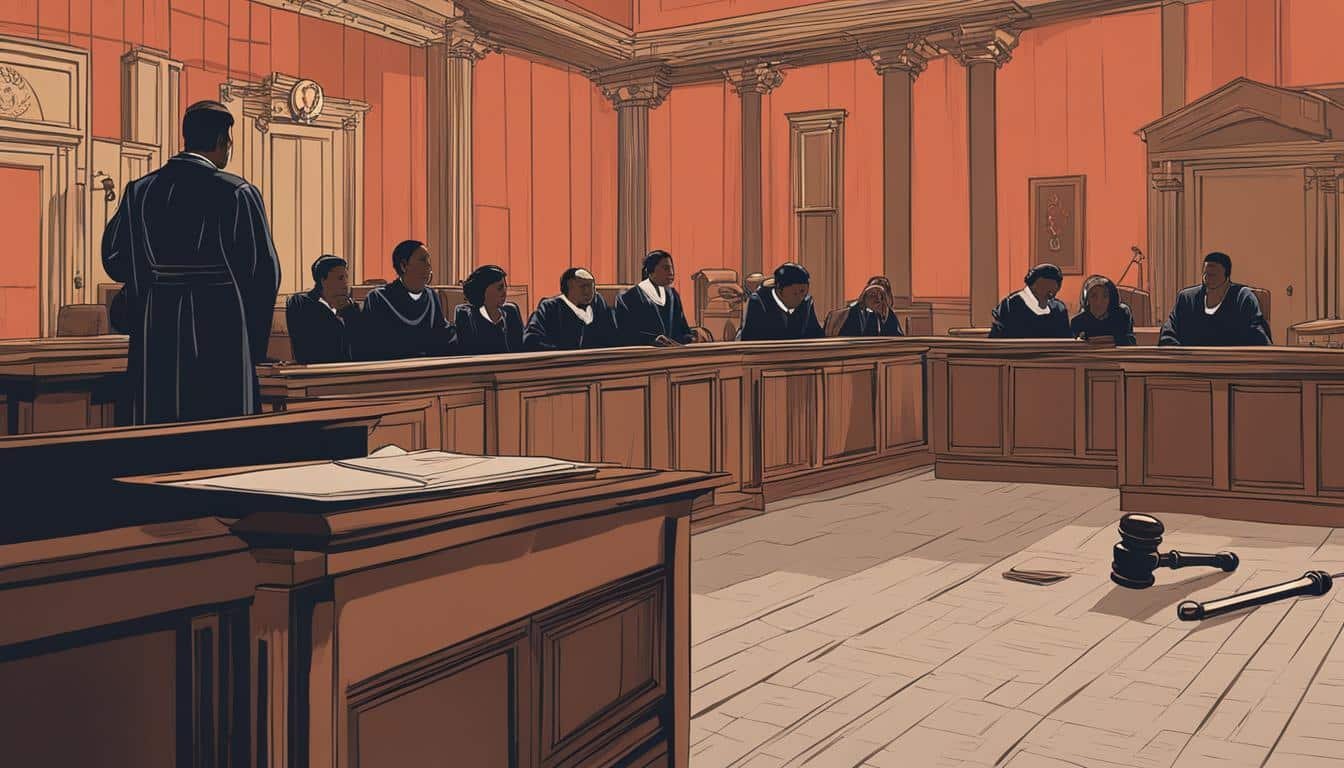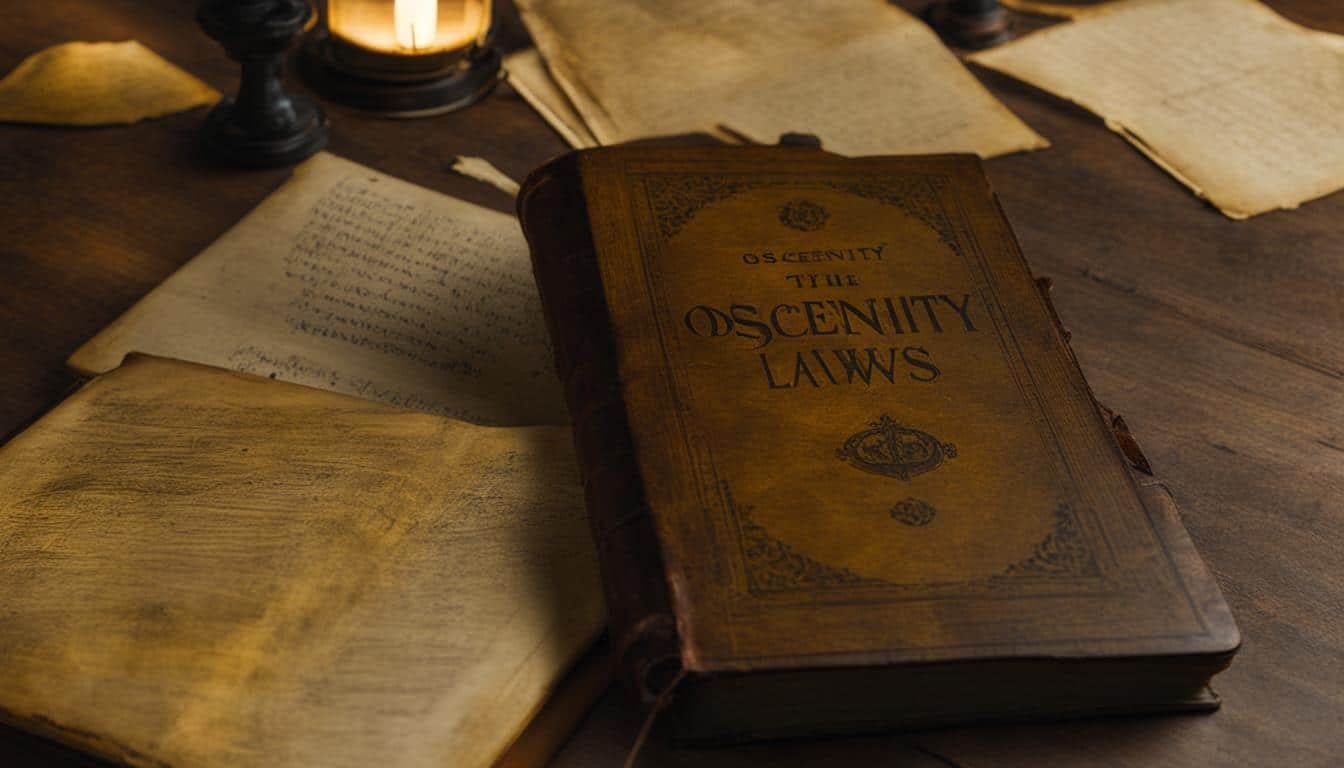Child pornography offenses carry severe legal penalties in the United States under federal and state laws. It is crucial to understand the consequences associated with engaging in such activities to protect yourself and others.
Key Takeaways:
- Child pornography is a felony offense with strict penalties under both federal and state laws.
- Possessing or accessing child pornography can result in prison time, with maximum sentences ranging from four to twenty years.
- Distribution, production, or receipt of child pornography carries mandatory minimum sentences of five to fifteen years.
- Convictions for child pornography offenses can lead to sex offender registration, employment restrictions, parole limitations, and even civil commitment.
- Consulting with legal experts experienced in defending child pornography cases is crucial to explore potential defenses.
Defenses Against Child Pornography Charges
Defending against child pornography charges can be a complex and daunting task. However, there are potential defenses that can be explored with the help of legal experts specializing in this area. These defenses aim to challenge the prosecution’s evidence and raise doubts about the accused’s culpability.
One common defense strategy is to argue that the person depicted in the material is not a minor. This defense relies on expert testimony to support the claim that the individual in question is of legal age. By introducing this doubt, it may be possible to undermine the prosecution’s case.
Another defense involves challenging whether the material in question meets the legal definition of “sexually explicit conduct.” Federal law provides a specific definition for sexually explicit conduct, and if the material does not meet this criteria, it may not qualify as child pornography. Legal experts can carefully analyze the evidence to determine if it falls within the scope of the law.
Computer forensic experts play a crucial role in defending against child pornography charges. They can examine the digital evidence and determine whether it was knowingly possessed or obtained inadvertently and promptly deleted. These experts can also investigate whether the accused’s computer was maliciously accessed by networks used for distributing child pornography, potentially raising doubts about their involvement.
Defenses Against Child Pornography Charges:
- Arguing that the person depicted in the material is not a minor, backed by expert testimony.
- Challenging whether the material meets the legal definition of “sexually explicit conduct”.
- Utilizing computer forensic experts to analyze the evidence and determine intent.
When facing child pornography charges, it is crucial to consult with legal experts experienced in defending these cases. They can help explore these potential defenses and develop a strategic approach to protect your rights and interests.
“Defending against child pornography charges requires a comprehensive understanding of the law and meticulous examination of the evidence. With the right legal team by your side, you can explore potential defenses and challenge the prosecution’s case.” – Legal Expert
Collateral Consequences of Child Pornography Convictions
Convictions for child pornography offenses can have long-lasting and far-reaching collateral consequences that extend beyond the initial legal penalties. These collateral consequences can significantly impact various aspects of an individual’s life, including their employment prospects, living arrangements, and personal freedoms.
One of the primary collateral consequences of a child pornography conviction is the requirement to register as a sex offender. This mandatory registration can make it extremely challenging to secure employment, as many employers are hesitant to hire individuals with a sex offense on their record. Additionally, sex offender registration often restricts where an individual can live and who they can live with, further limiting their options for housing.
Parole or probation for a child pornography conviction may also come with specific limitations and restrictions. These can include limitations on an individual’s use of electronic devices, such as computers and smartphones, as well as restrictions on their internet access and communication with minors. These restrictions aim to prevent further offenses and protect potential victims.
In some cases, a child pornography conviction can lead to civil commitment, which involves involuntary, long-term commitment to a secure mental hospital. Civil commitment is typically reserved for individuals deemed to be a high risk to the community and is intended to protect society from potential future harm. This consequence is often imposed when the court determines that the individual poses a significant risk of reoffending or is unable to control their behavior.
The Collateral Consequences of Child Pornography Convictions
Here is a summary of the collateral consequences that individuals may face following a child pornography conviction:
- Sex offender registration: Individuals must register as a sex offender, making it difficult to secure employment.
- Employment restrictions: Many employers are hesitant to hire individuals with a sex offense on their record.
- Parole limitations: Parole or probation may impose restrictions on an individual’s use of electronic devices and internet access.
- Civil commitment: Some individuals may be subject to involuntary, long-term commitment to a secure mental hospital.
It is crucial for individuals facing child pornography charges to thoroughly research and understand these collateral consequences before making decisions regarding guilty pleas or going to trial. Consulting with experienced legal experts who specialize in defending child pornography cases can help individuals navigate these complex issues and explore all available options for defense.
Federal Laws and Penalties for Child Pornography
Child pornography offenses are strictly regulated by federal laws in the United States. According to these laws, child pornography is defined as any visual depiction involving sexually explicit conduct with a minor under 18 years old. It’s important to note that explicit sexual activity is not required for an image to be classified as child pornography; even a naked image that is sexually suggestive can fall under this category.
The production, distribution, reception, and possession of child pornography are all prohibited under federal law, especially when using any means of interstate or foreign commerce. Offenders can face severe penalties, including statutory minimums ranging from 5 to 15 years in prison. In aggravated situations, the potential punishment can even include life imprisonment.
It’s worth mentioning that offenders may also be prosecuted under state child pornography laws, in addition to the federal charges. The federal laws and penalties aim to combat the serious and harmful nature of child pornography, ensuring that those involved face appropriate legal consequences.
Source Links
- https://www.pagepate.com/experience/criminal-defense/federal-crimes/federal-child-pornography/
- https://www.justice.gov/criminal/criminal-ceos/citizens-guide-us-federal-law-child-pornography
- https://www.zmolaw.com/what-are-the-penalties-for-child-pornography







